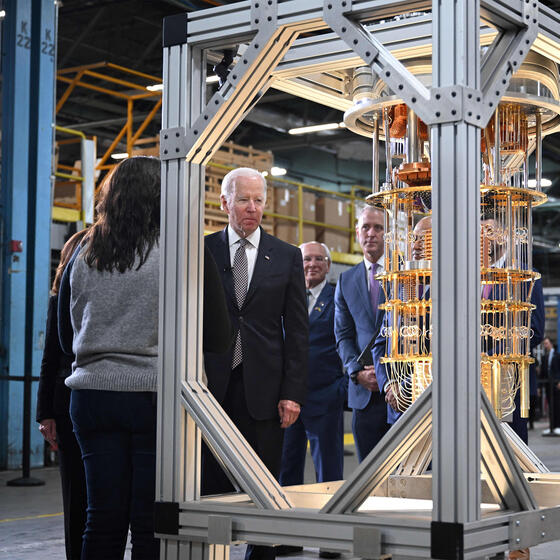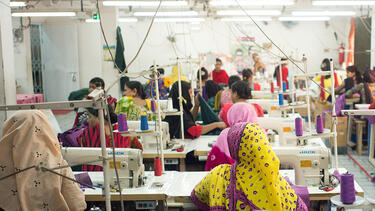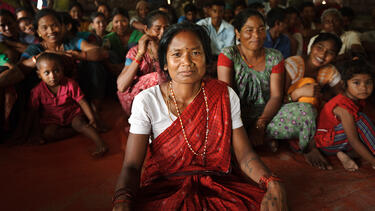Economic Development
Can Industrial Policy Help Revive Struggling Regions?
A new paper co-authored by Yale SOM’s Cameron LaPoint looks at an effort in 1980s Japan to narrow economic inequalities between geographic regions, in order to understand the potential impact of the similar U.S. CHIPS and Science Act, enacted in 2022.

The Myth of Nepal’s Missing Men
Professor Mushfiq Mobarak and co-author Alix Zwane argue that discouraging labor migration is not the right way to help Nepal recover.
Despite Risks, Garment Factory Jobs Have Long-Term Benefits for Bangladeshi Women
A new study finds that garment factory work reshapes the lives of women in Bangladesh in positive ways.

Corruption Decreases Technology Adoption in Emerging Markets
Technology adoption is lower in emerging markets with corrupt business environments, and higher in those with good transparency and enforcement, according to a new study forthcoming in Marketing Science.
Community Motivation and Subsidies Increase Toilet Use in Developing World
A combination of community motivation and subsidies targeted to the poor is the most effective way to increase toilet ownership and use, and decrease open defecation, in developing countries, according to a new study published in the journal Science.
Balancing the Letter and the Spirit
Should organizations favor the dependable efficiency of rules and standards or a less calculated but more flexible operation that bends to accommodate individual situations? How about both?
Can Insurance Help the Poor Manage Risk?
Rainfall insurance can help a farmer survive a drought year and ultimately increase prosperity in rural areas. So why aren’t more using it? Many people in developing countries rely on informal insurance, such as a family network, rather than formal insurance. Yale SOM professor Mushfiq Mobarak’s research has tested the effects of formal insurance for farmers in India and elucidated how the two systems interact.

Can Teaching Tea Workers In India To Read Have a Larger Impact?
Mercy Corps’ literacy program in Assam, India, works because it is local—designed and taught by staff with an understanding of the culture there. As a global organization, Mercy Corps needs to balance investment in a deep understanding of local issues with the imperative to make a difference in as many lives as possible.

Do international development organizations need to be in the innovation business?
Neal Keny-Guyer '82, CEO of Mercy Corps, talks about his organization's formula for innovation: local leadership, rigorous metrics, and a willingness to adapt and change in mid-project.

Can local empowerment create lasting change?
Over the last 50 years, Western aid to the poorest countries has often failed to make tangible improvements in the lives of their citizens. Nadim Matta '89, president of the Rapid Results Institute, talks about the organization's approach to achieving incremental change by empowering frontline stakeholders.

Can diplomacy benefit business?
The days of U.S. boycotts of South Africa are long gone. The country is an economic powerhouse in Africa and a key economic partner for the U.S. In four years as U.S. ambassador to South Africa, Donald Gips ’89 worked to increase investment and trade flows between the countries.
